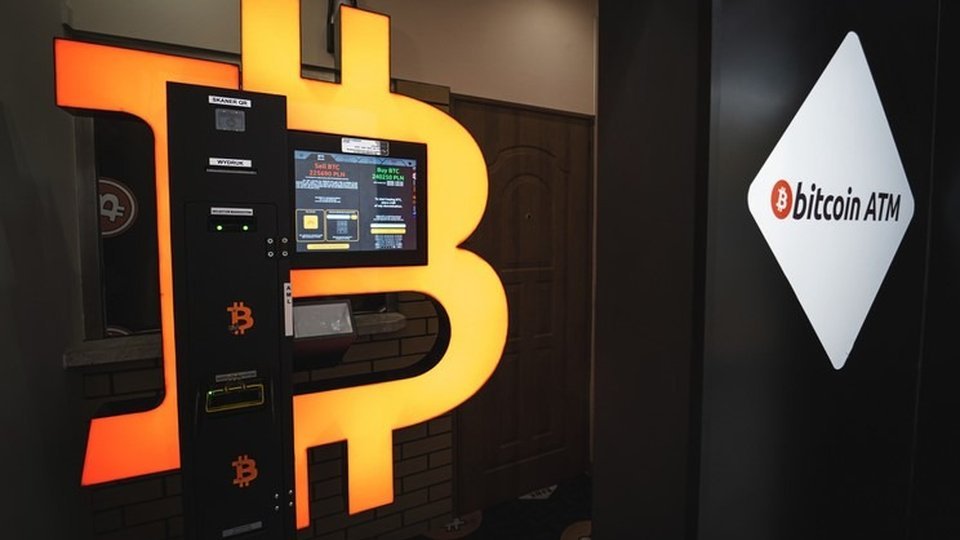In June 2024, 85-year-old Fran Bates of Fort Worth, Texas, received a phone call that she believed came from her bank. The caller warned that her savings were at risk and instructed her to withdraw cash to “protect” her funds. Over two days, Bates withdrew more than $40,000(₹3,549,600) and began depositing the money into what she was told was a secure “bank machine.”
The machine, however, was not a bank kiosk it was a Bitcoin ATM, one of over 45,000 such machines installed across the United States. These kiosks allow users to insert cash and instantly convert it into cryptocurrency, sending it to any digital wallet worldwide a process that is virtually irreversible.
“It’s a horrible, horrible experience,” Bates recalled in an interview. “You don’t realize what they’re doing to you. They’ve got you right where they want you.”
The scammer even arranged a car to take her to the gas station where the ATM was located. As she inserted stacks of $100 bills, the scammer stayed on the phone, guiding her step-by-step through the transaction.
FCRF Launches CCLP Program to Train India’s Next Generation of Cyber Law Practitioners
Bates was seconds away from completing the payment when another customer, Myndi Jordan, noticed something was wrong. Jordan, a former identity theft victim herself, intervened and called police saving Bates from losing everything.
A Growing Epidemic: Seniors and Crypto-Based Fraud
According to the FBI’s 2024 Internet Crime Report, Americans aged 60 and older lost $4.8 billion(₹425,952,000,000) to online scams last year a record high. Of that, nearly $250 million(₹22,185,000,000) was funneled through Bitcoin ATMs, double the figure from 2023.
Experts from the AARP Fraud Victim Support Center warn that Bitcoin ATMs have become “the No. 1 preferred method of criminals.”
“Requesting crypto is now the preferred choice for scammers,” said Amy Nofziger, AARP’s director of fraud victim support. “It’s fast, anonymous, and nearly impossible to trace once the money’s sent.”
Bitcoin ATMs make fraud especially hard to combat because victims willingly initiate the transaction, believing they are acting under legitimate instructions. Once the cash is converted into Bitcoin and transferred to an external wallet, law enforcement has little recourse.
Legal Action and Regulatory Scrutiny: Firms Under Fire
Authorities have begun to take notice of the widespread exploitation of crypto kiosks. In September 2025, the Washington, D.C., Attorney General sued Athena Bitcoin, one of the nation’s largest Bitcoin ATM operators, accusing the firm of “pocketing hundreds of thousands of dollars in undisclosed fees on the backs of scam victims.”
The lawsuit claims that 93% of Athena’s transactions in D.C. were linked to fraud, with a median victim age of 71. Athena denied wrongdoing, stating that it maintains “strong safeguards against fraud, including transparent instructions, warnings, and consumer education.”
Similar lawsuits have been filed in Iowa, where Attorney General Brenna Bird accused Bitcoin Depot and CoinFlip two major ATM operators of being “silent partners” to scammers by charging excessive and deceptive fees. Both firms denied the allegations.
Bitcoin Depot told that “the vast majority” of transactions are legitimate and that it proactively requires ID verification for all transactions, displaying up to four scam warnings before completion. CoinFlip said it refunds transaction fees to confirmed scam victims and maintains a zero-tolerance stance toward fraud.
Still, critics argue that high transaction fees sometimes exceeding 20% per deposit — and lax compliance controls make these machines ripe for abuse.
“They either know or they’re turning a blind eye,” said Adam Zarazinski, CEO of the crypto forensics firm Inca Digital, who investigates blockchain-based fraud.
The Heroic Intervention: A Guardian Angel and a ‘Knight in Shining Armor’
Fran Bates’ story took a rare positive turn thanks to the vigilance of strangers.
When Myndi Jordan noticed Bates feeding cash into the kiosk, she immediately alerted police. Lieutenant James Stewart of the White Settlement Police Department responded to the scene and grabbed Bates’ phone mid-call, confronting the scammer.
“Ma’am, just click ‘I’m done,’” the scammer was heard saying on Stewart’s bodycam footage.
“No, don’t click anything,” Stewart countered firmly.
The transaction was halted just in time. Days later, Stewart contacted the ATM operator, who refunded the full amount. The officer personally delivered a cashier’s check to Bates and escorted her to the bank to redeposit her funds.
“It felt amazing being able to see it to the end,” Stewart told. “She gives amazing hugs that was the best part of it.”
Bates now calls Jordan her “guardian angel” and Stewart her “knight in shining armor.”



